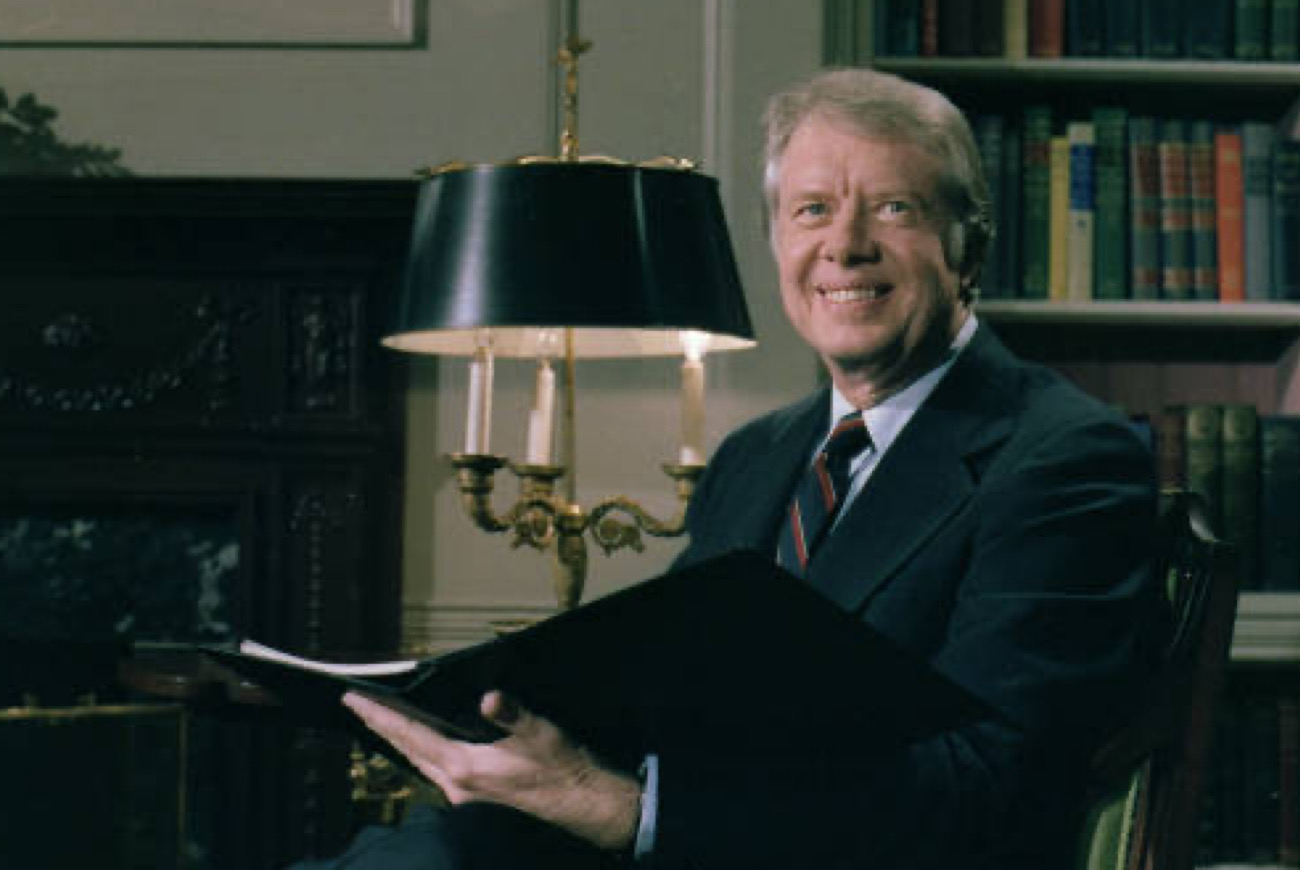Jimmy Carter, the Georgia peanut farmer who made history as the 39th president of the U.S. and later snagged a Nobel Peace Prize for his work in human rights, has passed away at the age of 100.
“Our founder, former U.S. President Jimmy Carter, passed away this afternoon in Plains, Georgia,” The Carter Center said in a statement announcing his death on X. It added that he died peacefully, surrounded by his family.
RELATED: BREAKING: Jimmy Carter, The 39th U.S. President, Enters Hospice Care
A devoted Christian who spent decades teaching Sunday school at his local Baptist church, Carter’s faith-driven politics were seen as a refreshing counter to the cynicism prevalent during the Watergate era. He made an unexpected leap from the governor’s mansion in Georgia to the White House.
His presidency from 1977 to 1981, though, was tough for many Americans, overshadowed by economic struggles and the Iranian Revolution, which led to U.S. diplomats being held hostage for 444 days, only released just after Ronald Reagan took office.
With time, some key achievements from Carter’s administration gained recognition. These included the Camp David Accords, which paved the way for peace between Egypt and Israel, the Panama Canal Treaty, and the SALT II Treaty with the Soviet Union aimed at limiting strategic missile development. He also established formal diplomatic ties between the U.S. and the People’s Republic of China.
RELATED: Donald Trump Reveals Who Hurt His Feeling The Most At The DNC — “The Nastiest Speaker”
“Human rights is the soul of our foreign policy, because human rights is the very soul of our sense of nationhood,” the Democratic president said during a 1978 White House event.
Domestically, Carter was instrumental in setting up the Department of Energy and the Department of Education. He called on Democrats to tackle excessive government spending while also boosting the Pentagon’s budget—a move that raised eyebrows among some party members but later found more support with presidents like Bill Clinton and Barack Obama.
Even after stepping down, Carter stayed active in global diplomacy, often through the Carter Center. He worked to broker ceasefires in conflict zones and served as an election monitor in emerging democracies, always pushing for peace and progress.






